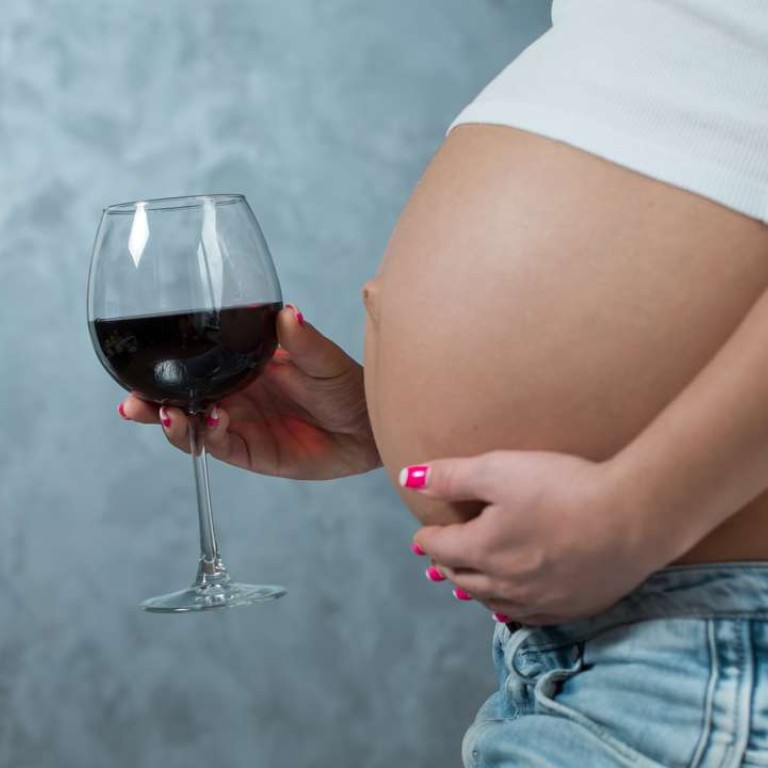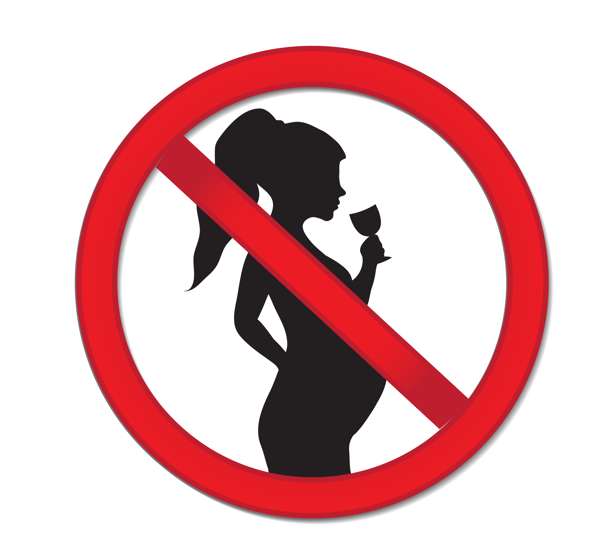
How binge drinking – even if you stop before you’re pregnant – can harm your baby’s life chances
Studies suggests that drinking while pregnant can affect children and grandchildren, and even drinking before conception can have harmful effects
Most expecting parents have heard of fetal alcohol spectrum disorder (FASD), which covers a group of conditions that can occur in a person whose mother drank alcohol during pregnancy. Problems include an abnormal appearance, short height, low body weight, small head size, poor coordination, low intelligence, and problems with hearing or seeing. Affected babies are also more likely to have behavioural issues at school and in adulthood.
The effects can be carried across the generations, too. Last year, a study from Binghamton University in New York found that when a woman drinks even a small amount of alcohol while she is pregnant, she also increases the chances of her children, grandchildren and great-grandchildren developing alcoholism.
But what about the dangers of consuming excessive amounts of alcohol before you even fall pregnant? A new study carried out at Rutgers University in New Jersey points to a connection between maternal alcohol abuse before pregnancy and high blood sugar in children as well as an increased risk of diabetes as adults.
Alcohol consumption in Hong Kong is said to be on the rise, particularly since February 2008, when the exemption of duty for wine and drinks with an alcoholic strength of not more than 30 per cent was implemented. According to the Census and Statistics Department, alcohol consumption has increased from 2.57 litres per capita in 2004 to 2.83 litres per capita in 2015.

The principal investigator of the New Jersey study, Dipak Sarkar, conducted his research on rats, whose basic processes of glucose function are similar to those in humans. At the start of the study, one group of female rats received alcohol, which raised their blood alcohol to levels similar to that of binge-drinking humans. Two control groups of female rats did not receive alcohol. After four weeks, the alcohol was removed from the non-control group’s diet and then all the rats were bred three weeks later. Their offspring were monitored and tested after they reached adulthood.
The rats whose mothers had been exposed to alcohol before conception were found to have an increased vulnerability to stress and showed anxiety-related behaviour. In addition, they displayed several signs of abnormal glucose function, including high blood sugar levels. Sarkar and his team also found that alcohol exposure before conception affected the pancreatic health of the offspring. The pancreas, which is an organ located in the abdomen, secretes enzymes that aid digestion and hormones including insulin that help regulate the metabolism of sugars.
“These findings suggest that (the effects of) a mother’s alcohol misuse before conception may be passed on to her children,” says the study’s co-author Ali Al-Yasari. “These changes could have lifelong effects on the offspring’s glucose function and possibly increase their susceptibility to diabetes.”

“It’s not surprising that we see sugar metabolism problems in the rats as a result of their mothers’ alcohol consumption before pregnancy,” says Dr Charas Ong, a specialist in obstetrics and gynaecology at The Women’s Clinic in Central. “Certainly, this can occur in human beings too, but because we all metabolise alcohol differently, it’s hard to pinpoint how much alcohol will cause such damage or exactly what kind of effect a mother’s pre-pregnancy alcohol consumption can have on her offspring.”
“While I have not come across any women whose pre-pregnancy binge drinking episodes caused them to deliver unhealthy babies, it is true that a high alcohol consumption causes blood sugar levels to spike,” says Dr Ann Tan, a gynaecologist and obstetrician at Women Fertility & Fetal Centre in Singapore. “When a woman’s blood sugar and alcohol levels are consistently elevated, she exposes her child not only to the damaging effects of alcohol on the developing fetal brain but also potential damage from the excess sugar. In fact, some couples have opted not to continue with the pregnancy if there was recent history of excessive alcohol intake.”
Of course, the sooner you are aware that you’re pregnant, the sooner you can modify your drinking habits. This is why early pregnancy detection is so important. Dr Tan says that the majority of her patients stop drinking alcohol completely as soon as they decide that they want to have a baby or once they find out that they are pregnant.
Dr Tan’s observations mirror the results of a recent Vanderbilt University Medical Centre study. The study, which was authored by Dr Katherine Hartmann, professor of obstetrics and gynaecology and deputy director of The Institute for Medicine and Public Health at Vanderbilt, found that the vast majority of women with intended as well as unplanned pregnancies either stopped or decreased drinking after having a positive pregnancy test.
“Our study was not focused on whether or not alcohol is safe in the early conception window,” says Dr Hartmann. “We wanted see what women were currently doing. And we were pleasantly surprised at how promptly people changed their alcohol use – most quitting completely and about six per cent of women continuing to consume some alcohol, almost all of them at very low levels.
“Women were already self-regulating their alcohol use. Our findings suggested that promoting early pregnancy awareness could prove to be more effective than promoting abstinence from alcohol among all who could conceive.”
Still, Dr Tan says that to be safe, you should avoid alcohol completely while trying to fall pregnant as well as during your pregnancy. If you inadvertently consumed a glass of wine or two around the time of conception, however, she says not to worry because the risk of your baby developing FASD is low.
“As long as a woman isn’t a chronic alcohol abuser and is generally healthy, there’s no reason why she will not have a healthy baby,” says Dr Ong. “If you binge drink, but are at a stage in your life where you’re thinking of falling pregnant, I suggest that you stop binge drinking altogether. You should also see a doctor to get your alcohol consumption habits under control as well as assess your health. Chronic alcohol abuse is associated with obesity, diabetes, a high body mass index and malnourishment, so if you have any of these problems you should aim to resolve it under your doctor’s guidance before trying for a baby.”

